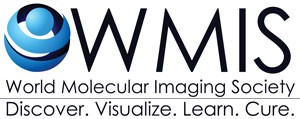CULVER CITY, CA., September 26, 2018 – Groundbreaking research in the field of cancer imaging was presented at the 2018 World Molecular Imaging Congress (WMIC), September 12-15 in Seattle, WA, USA. These presentations were chosen by the WMIC Reviewers and featured by Past WMIS President, Jason S. Lewis, PhD, WMIS Fellow, Memorial Sloan-Kettering Cancer Center, in the Highlights Lecture to recognize the top abstracts of the meeting.
Soyoung Kang, PhD, Yu Wang, PhD, and Jonathan Liu, PhD, at the University of Washington, were recognized for their work in breast cancer research using a new Raman-encoded molecular imaging (REMI) technique for intraoperative guidance of lumpectomy. Over 200,000 patients are diagnosed with early-stage breast cancer each year in the US, for which lumpectomy is a standard intervention.
Unfortunately, 20%‒40% of these patients require additional surgery if post-operative pathology reveals that the surgical margins are positive for cancer. Kang believes REMI could significantly reduce the costs, emotional trauma, and potential complications associated with multiple surgeries.
“The ability to detect multiple cancer biomarkers is critical for accurate tumor detection because the molecular profiles of most cancers, including breast cancer, vary greatly between patients,” said Kang.
A first-in-human clinical study was performed to assess the diagnostic accuracy of this study and found this technique to be successful. They plan to further improve REMI by working to improve imaging speeds and resolution.
Patrícia Manuela Ribeiro Pereira, PhD, Memorial Sloan-Kettering Cancer Center, New York, NY, USA, was also recognized for her work presented at WMIC 2018. The idea of Pereira’s work is that administration of a statin may affect the patient’s response to Herceptin.
Pereira explains that if the tumor HER2 receptor is overexpressed (i.e. the protein levels are elevated) the patient may be selected for Herceptin treatment. However, her preclinical findings revealed that tumors with high levels of another protein, caveolin-1, might not respond as well to Herceptin therapy. Models of both breast and gastric tumors were treated temporally with a statin; the statin was found to deplete caveolin-1, increasing HER2 availability for binding of the therapeutic Herceptin.
MSK will continue to validate this inverse relationship between caveloin-1 and HER2 proteins, and statin intervention both prospectively preclinically and retrospectively in humans.
Pereira’s team hopes to begin clinical trials in the next few years.
“The WMIC meetings are excellent and a rare opportunity to discuss several areas of molecular imaging as well as to meet scientists with an excellent international reputation,” said Pereira. “These meetings and all the benefits that I have as a WMIS member have helped me tremendously in my own research and in my career development. I will continue to encourage researchers in becoming members of the WMIS.”
ABOUT WORLD MOLECULAR IMAGING SOCIETY
The WMIS is dedicated to developing and promoting translational research through multimodality molecular imaging. The education and abstract-driven WMIC is the annual meeting of the WMIS and provides a unique setting for scientists and clinicians with very diverse backgrounds to interact, present, and follow cutting-edge advances in the rapidly expanding field of molecular imaging that impacts nearly every biomedical discipline. Industry exhibits at the congress included corporations who have created the latest advances in preclinical and clinical imaging approaches and equipment, providing a complete molecular imaging educational technology showcase. For more information: www.wmis.org
###
Read the press release on PRWeb, here.
Contact: LAUREN WHITMAN
Phone: 310-215-9730 x3
Email: lwhitman@wmis.org
